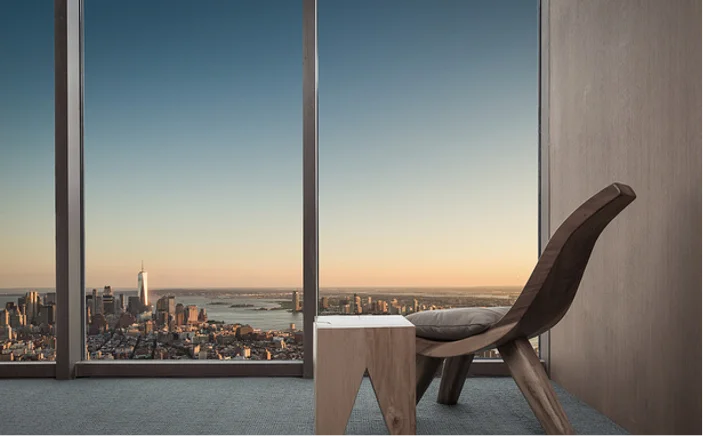- This topic is empty.
-
AuthorPosts
-
2025-08-14 at 5:57 pm #86105
In modern construction, energy efficiency, safety, and aesthetics are more important than ever. One material that plays a key role in meeting these demands is insulating tempered glass — a type of high-performance glazing solution ideal for both commercial and residential applications.
Whether you’re working on a high-rise office tower, a modern villa, or a curtain wall project, selecting the right glass can make a significant difference in performance, comfort, and long-term value.
In this guide, we’ll walk you through the essentials of choosing the right insulating tempered glass for your building project — and explain how Ningbo QH Import and Export Co., Ltd. can be your trusted partner in sourcing high-quality architectural materials.

What Is Insulating Tempered Glass?
Insulating tempered glass, often referred to as double glazing, consists of two panes of tempered glass separated by an air or inert gas-filled space. This structure significantly improves:
-
Thermal insulation
-
Sound reduction
-
Condensation resistance
-
Impact and shatter resistance
The tempering process strengthens the glass, making it up to 5 times more durable than standard float glass — a critical feature in projects where safety and longevity are essential.
1. Understand Your Project’s Thermal and Energy Requirements
Different climates and building orientations demand different glazing solutions. For colder regions, consider low-E coated insulating tempered glass to reduce heat loss and improve energy efficiency. In warmer zones, solar control coatings can reduce heat gain and improve indoor comfort.
Ningbo QH Import and Export Co., Ltd. specializes in energy-efficient tempered glass solutions tailored to a range of architectural and climate requirements, helping developers meet strict building codes and green certification standards.
2. Evaluate Safety and Strength Needs
Tempered glass is a must-have in areas where human safety is a priority — such as facades, skylights, doors, balconies, and curtain walls. Insulating glass with tempered panes not only meets safety codes but also reduces the risk of injury in the rare event of breakage.
QH provides architectural-grade tempered units engineered to withstand wind loads, thermal expansion, and impact — suitable for both low-rise and high-rise projects.
3. Consider Acoustic Insulation
In urban environments, noise reduction is a key performance indicator. Thicker glass, asymmetrical pane configurations, or laminated layers within insulating glass units can greatly improve soundproofing.
QH’s product range includes custom acoustic insulating glass designed for residential buildings near roads, airports, or other high-noise zones — offering both peace of mind and peace and quiet.
4. Factor in Aesthetics and Transparency
Modern architecture often embraces large glass surfaces for natural lighting and visual openness. But not all glass is created equal — color, reflectivity, and clarity matter.
QH offers aesthetic customization, including:
-
Tinted and reflective coatings
-
Frosted or decorative interlayers
-
Ultra-clear low-iron glass options
These options help architects achieve their desired look while maintaining performance.
5. Choose the Right Spacer and Gas Fill
The spacer bar and gas fill between the panes affect thermal and sound performance. Common spacer types include aluminum, warm-edge, or stainless steel. Argon gas is frequently used to improve insulation.
QH ensures quality down to the details, offering precision-sealed insulating glass units with optimized spacers and inert gas fillings for enhanced durability and performance.
6. Check Compatibility with Frames and Hardware
Insulating tempered glass must be matched with suitable window and curtain wall frames. Frame materials like aluminum alloy offer structural strength and modern aesthetics while supporting large-format glass.
Ningbo QH Import and Export Co., Ltd. goes beyond glass — offering a complete package including aluminum curtain walls, window and door systems, and related hardware fittings — ensuring compatibility and streamlined procurement for your entire project.
7. Look for Proven Quality and Service
Finally, partner with a supplier who offers:
-
Consistent manufacturing standards
-
Customization support
-
On-time delivery
-
After-sales technical assistance
QH is known for its integrated approach — from R&D and manufacturing to sales and implementation services. With a strong track record in both domestic and international markets, QH delivers not just products, but comprehensive solutions for modern architecture.
Conclusion
Choosing the right insulating tempered glass is about more than just selecting a product — it’s about ensuring performance, safety, and aesthetics in harmony with your project’s vision and technical needs.
With its wide range of glass products and architectural materials, Ningbo QH Import and Export Co., Ltd. is your ideal partner for high-quality, energy-efficient, and design-forward construction solutions.
http://www.cheonho-build-material.com
Ningbo QH Import and Export Co., Ltd. -
-
AuthorPosts
- You must be logged in to reply to this topic.


